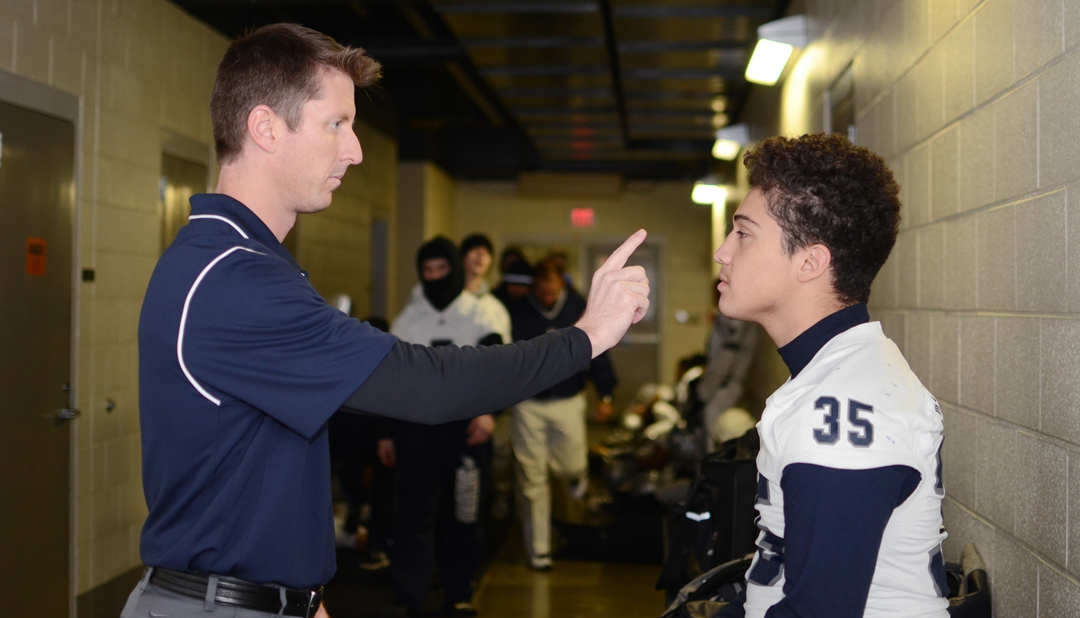What Happens During Concussion Testing?
As a parent, ensuring the safety and well-being of your young athlete is a top priority. While injuries are inevitable in sports, one concern that often arises is the risk of concussions. A concussion is a mild traumatic brain injury that causes a temporary loss of brain function. These injuries can negatively affect balance, coordination, reflexes and speech, among other skills.
Concussion testing plays a crucial role in diagnosing and making treatment decisions about a child’s head injury and provides accurate information about your child’s neurological health.
Baseline Concussion Testing With ImPACT
One of the most effective concussion tests your child can have happens before the injury occurs.
A baseline test known as ImPACT measures your child’s memory, reaction times, reasoning skills and abilities in other areas to establish what’s normal for your child. If your child sustains a head injury, specialists can perform the test again. Physicians compare the results to determine if your child has a concussion and, if so, what treatments your child may need.
Your child will take the baseline test online, ideally before the sports season begins. It takes about 20 minutes and asks your child questions appropriate to their age and developmental level.
The post-injury tests are similar, but if your child is younger than 11, you may need to answer questions about his or her symptoms. A specially trained provider will review the results and provide them to your child’s healthcare team.
Signs Your Child Needs a Concussion Evaluation
Concussions occur following a fall or a blow to the head. The force of the impact shakes the brain, damaging cells and triggering chemical changes.
It can be difficult to detect a concussion without testing. Some athletes don’t experience symptoms for hours or even days after the event, and kids don’t always think their symptoms are serious enough to sit out the rest of a practice or game.
Contact a sports medicine specialist about an evaluation if your child displays any of the following signs of a concussion immediately or in the days after a head injury:
· Acting dazed or stunned
· Blurred or double vision
· Changes in mood (more anxious, irritable, upset or sad)
· Clumsy movements
· Confusion
· Difficulty concentrating
· Dizziness or loss of balance
· Fatigue and trouble sleeping
· Headaches
· Increased sensitivity to light and noise
· Slow, slurred speech
· Nausea and vomiting
· Numbness or weakness in the arms and legs
Concussion Testing After an Injury
If your child experienced a head injury, concussion testing helps determine if the event impacted brain function. However, the type of concussion test your child has will depend on the extent of the injury.
Sports medicine physicians use a variety of concussion assessment tools, often starting with a physical exam to review your child’s balance, coordination, hearing, reflexes and vision.
During a post-injury concussion evaluation, the doctor will ask questions about the injury, including:
· What caused it
· Any signs and symptoms your child has experienced or that you have noticed
· Whether or not your child lost consciousness and for how long
Your child’s physician may order imaging tests, such as CT scans and MRIs. These can’t tell you whether your child has had a concussion, but they can reveal bleeding or other injuries resulting from the collision. Bloodwork that checks for proteins associated with mild concussions may also help the physician identify other injuries.
If your child had a baseline test, he or she will also have a post-injury cognitive test.
Your Child’s Return to School and Play
Depending on the results of the physical exam and post-injury cognitive test, your child’s doctor will begin treatment, which usually focuses on management of concussion symptoms with medication and rest until the concussion fully heals. Kids may need to stay home from school for a few days and gradually return with shorter days, reduced workloads and more break periods.
You’ll want to work with your child’s doctor, school nurse, athletic trainer and coaches to ease your child back on the field or court. Work with the school’s athletic department or local sports organization, as well, because they may have different protocols about when your child can return, even if the doctor clears him or her for participation.
Accurate concussion evaluation is essential for proper healing and the prevention of further concussions and complications. In addition, following the doctor’s orders about when to return to sports and other activities is critical. If your child participates in sports before a concussion heals and has another injury, he or she may experience severe brain damage.
Scottish Rite for Children Orthopedic and Sports Medicine Center offers high quality care for concussions and other sports injuries from a dedicated team of sports medicine specialists. Call 469-515-7100 to schedule a baseline testing appointment with one of our athletic trainers and learn more about our concussion program.

